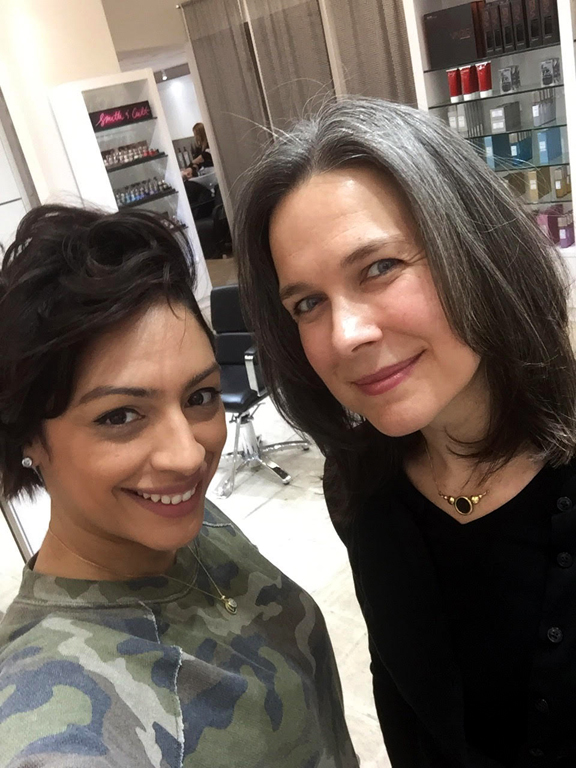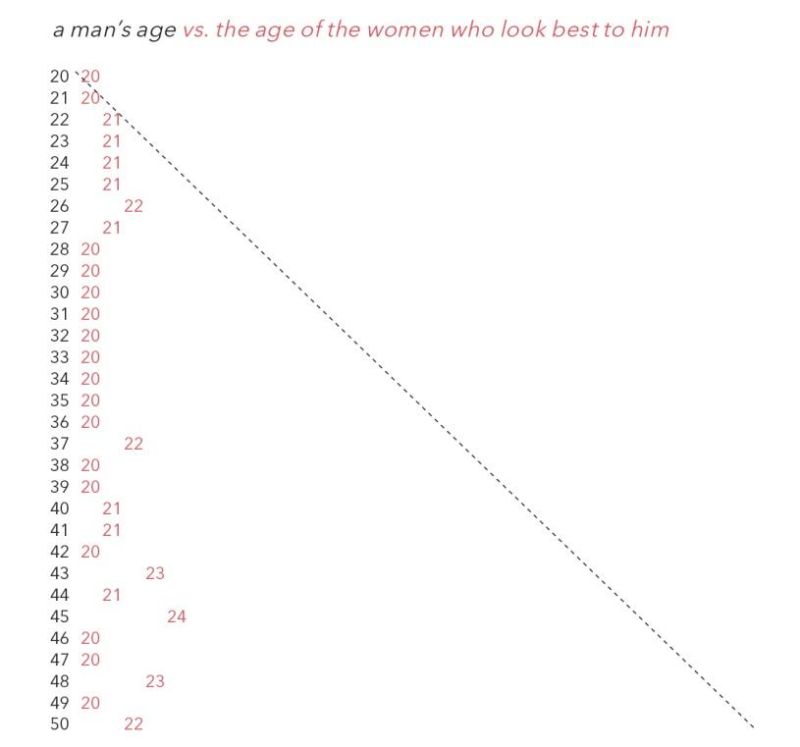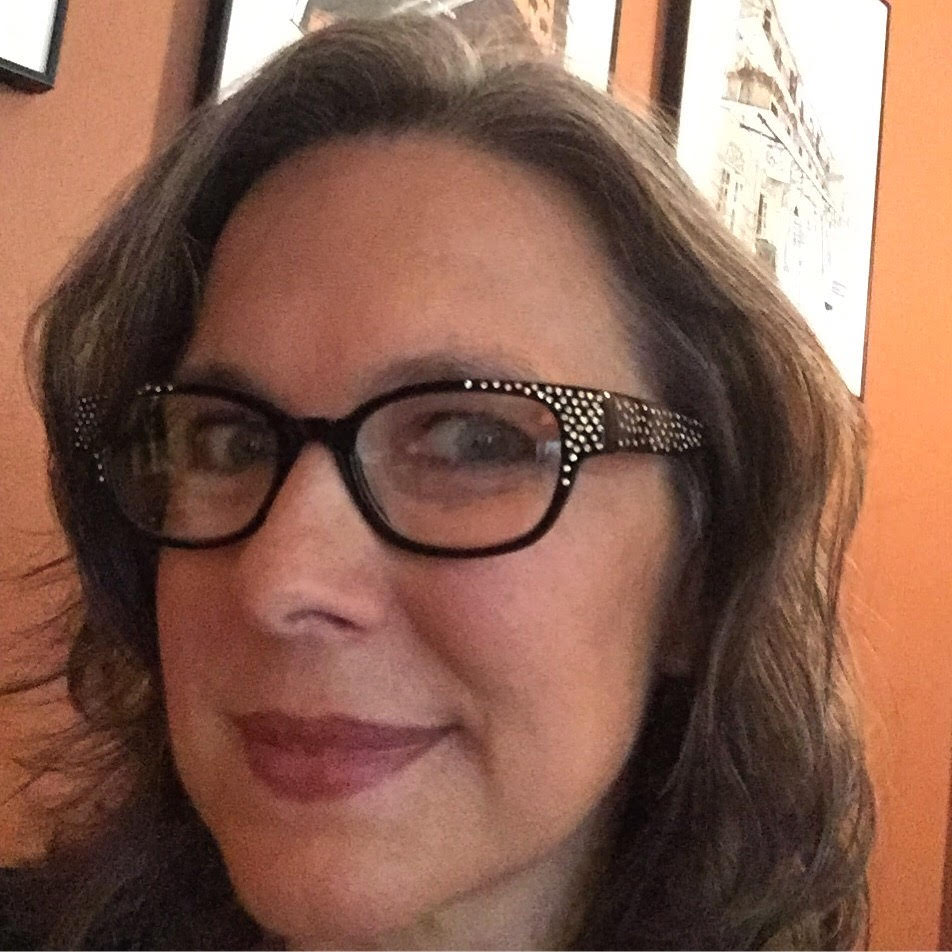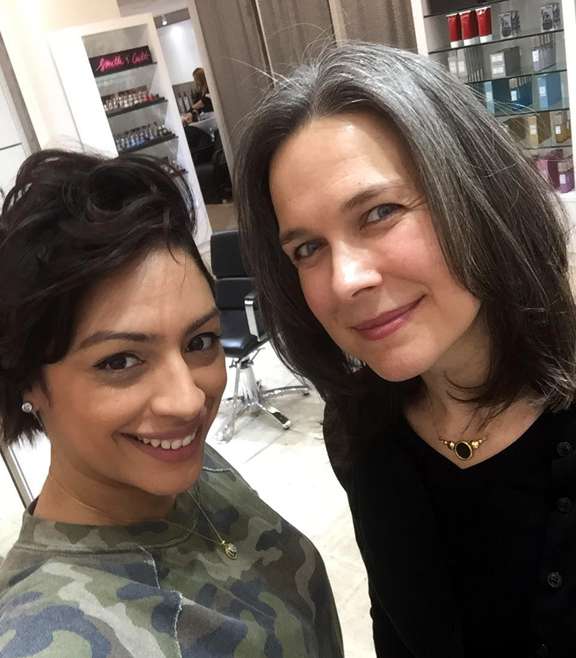
Growing out my gray hair was more than a personal decision.
I didn’t realize that when stopped coloring my hair two years ago, after decades of being a bottle redhead. I simply felt like piling toxic-smelling chemical dye on top of my head every few weeks was inconsistent with my other lifestyle choices, including eating healthy organic food, drinking water filtered through an elaborate double osmosis set up and moving toward natural cosmetics and body care products.
Then I watched how people reacted to those silver strands appearing. I began to understand I was defying the cultural expectation that we not age, like Peter Pan, and that challenging social norms is unnerving to some.
I was taken aback when two women I’d never met approached me at a party to tell me they could see I was growing out my color and to urge me to reconsider. They said I was too young to go gray and that going natural would age me.
Then one of the women nervously told me she could never stop coloring her hair.
Ahhhh. So this scolding was about her own anxiety about aging, and seeing me look my age triggered her discomfort.
This has happened numerous times since: a woman pressing me to return to dying my hair, quickly followed by her own monologue about why she absolutely could never give up coloring.
Men, by the way, have repeatedly told me they like my gray. Some have been young men maybe half my age, some have been middle aged. Several of the older guys have asked if I could show their wives my hair because they’d been having an ongoing conversation about giving up color. Those interactions always end with the wife saying, “It looks fine on you but I could never stop coloring my hair because …”
Our society is so youth obsessed, particularly around our ideal of female beauty, that it provokes anxiety to give up this fake indicator of still being young.
What if we become invisible or devalued or marginalized because we no longer look 22?
We aren’t just making this up — have you read Christian Rudder’s analysis of the age of women men find most attractive, based on data from OKCupid? As women get older, so do the men they’re attracted to, but men’s ideal gets stuck right around the legal drinking age.

I understand. I don’t like being seen as past my sell-by date.
But what if we as women reject this pressure to pretend we are frozen in time? What if we own that we are not 22 any more, but instead we’re a different kind of beautiful in our 40s or 60s?

What if we protest the nonsense unattainable ideal of being young by not participating in the expensive, time consuming ritual of hiding evidence of our aging?
And – real talk here, ladies – I now notice how many women have phony looking hair color. Our skin tone changes as we age and what was your natural hair color in your 20s might look harsh and unflattering in your 50s, so the softness of some silver might actually look better on you.
Is the reaction I’ve been getting from men, enthusiastically complementing me on my gray hair, a sign that at least some men find us attractive after the ink on our college diplomas has dried? Maybe if more of us go that way, they’ll have a chance to see more examples of aging gracefully to balance out the airbrushed young skinny models and surgically enhanced porn actresses who otherwise set the standard for sexy.
I’m not giving up caring about my appearance. But just as it looks ridiculous when a middle aged woman dresses like she’s still in college, I’d rather look like the best version of 46 than like some cheap replica of 26.
Previous posts about growing in my gray:

Letting my gray hair show is an act of protest
